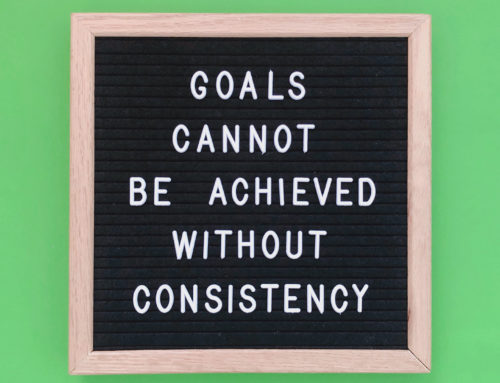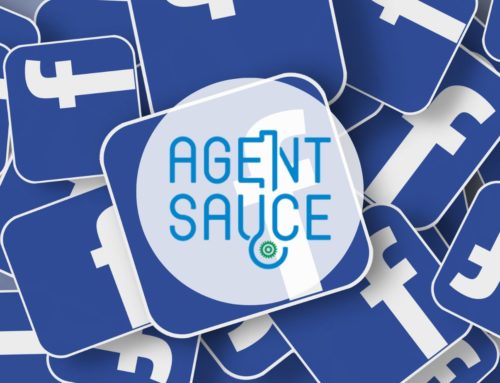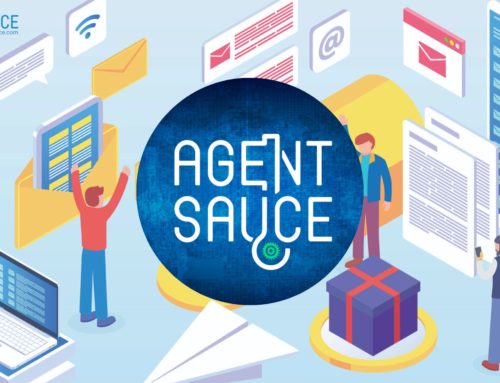Mobile Marketing (along with Social Media Marketing) seems to be one of the buzz terms in the Real Estate industry lately. Because of this interest a number of companies have popped up recently that claim to have a Real Estate Mobile Marketing solution. Invariably, many of them have a similar concept; text in a keyword to a number and get back information on the property via a text message. And that is where most of them stop.
Many of these new companies leave out the essential features, options and controls necessary to help REALTORS generate qualify leads via mobile marketing. We have compiled a list of features (and why they are important) that you should look for in your Real Estate Mobile Marketing solution.
- Instant Notifications- These notify you as soon as an inquiry comes in. The notification should provide both the number of the person inquiring and the basic information about the property. You should have an option of receiving notifications via text (SMS), email or both.
- Link to Mobile Optimized Website or Virtual Tour- Many services claim to be a complete mobile package. They include a link to the property’s virtual tour in the text message but they leave it up to the real estate agent to make sure the virtual tour is mobile optimized. By having a mobile optimized virtual tour you ensure that the prospective buyer can get the information they want without having to decipher a web site that shows up poorly on their phone.
- Email Package- Text Messaging by its nature is limited to 160 characters. While you can pack a lot of information into that 160 characters you can’t get it all in there. Make sure that your Real Estate Text Message provider has an email option. This will provide you with a way to capture a leads email address and provide the lead with more information on demand.
- Call Me Now Option- I know, the lead is texting because they don’t want to call. But, once they have the information they requested and have been able to qualify the home as one they want to see more of they are more likely to want to speak to an agent. Why not make it easy on them and have the agent call? It is also a way of qualifying very interested leads.
- Reporting- no program, no matter how inexpensive or simple to use is worthwhile unless it provides reporting. All reporting should include date and time of day, property information, phone number and type of inquiry (text, email package, call me, etc…). In addition to online reporting a weekly or monthly summary that is automatically emailed to you should be part of the package because, let’s face it, you are busy and the last thing you need to do is log in to yet another web site just to run activity reports.
Another concern is that many of these Mobile Marketing for Real Estate providers are ignoring best practices and laws specific to mobile marketing that could have serious consequences for any agent using them. We have seen where many of these companies offer a “Text-Blast” feature, while this is a great idea many are not following TCPA laws that could lead to ~$1500 per message fine to the agent. (This is in no way meant to be legal advice, please consult an attorney for complete clarification on how to be compliant with TCPA.) Below is one of our podcasts where we discuss this and other Real Estate Mobile Marketing concerns.
Real Estate Mobile Marketing Take Aways
- Respond Quickly
- Respond in the same fashion as the inquiry came in
- Be compliant with all laws, rules and regulations
Real Estate Mobile Marketing Transcript
Adam Small: Good afternoon, this is Adam Small, with Agent Sauce, and this is the Real Estate Marketing Podcast. With me today, here in the DK New Media studios is Doug Karr.
Douglas Karr: Hello, sir.
Adam Small: How you doing today, Doug?
Douglas Karr: Always wonderful.
Adam Small: Seem a little subdued today. Just a little bit, but I’ll let it slide. And we’ve got Austin Day, intern Austin, with us as well.
Austin Day: Hey guys, hey guys.
Adam Small: Doing all right today, Austin?
Austin Day: Not too bad.
Adam Small: All right, great. So today I thought we’d talk about another real estate lead generation technique that has been commonly used here, in the last few years, and that would be Mobile Marketing for real estate marketing, or Text Messaging/SMS for real estate. That sort of thing. Initial thoughts, Doug?
Douglas Karr: Mobile marketing.
Adam Small: Mobile marketing, there you go.
Douglas Karr: Overview, I guess.
Adam Small: Well, the thing about it is, real estate mobile marketing can really encompass a lot of things.
Douglas Karr: Oh yeah, sure.
Adam Small: Any more, you know?
Douglas Karr: Apps and mobile web, and everything else.
Adam Small: Right. Apps, and ads, and mobile web, as well as push notifications, text messaging. And at one point in time, it was even defined as having a billboard on a truck that you could drive around.
Douglas Karr: Come on, that was not mobile marketing.
Adam Small: I know it wasn’t, but when I first starting with mobile marketing, I would say mobile marketing, and they’d get all excited, ’cause they’d seen a truck drive by with a billboard on it.
Douglas Karr: Nice, nice.
Adam Small: You know, and it’s like, no, that’s not what we’re doing here. What we’re doing is trying to target the mobile device, you know? So what we’re looking at in particular today is using SMS as opposed to any other technology like Bluetooth, for Mobile Marketing. So what are some of the unique ways that you’ve seen SMS text messaging used for mobile marketing, Doug?
Douglas Karr: Well I mean the thing about SMS that’s probably different from everything else is that it can be seen as invasive, but that can be used to your advantage. And so the things that I like the best are the just-in-time type messages. So if you’re checking your email, you might see the email from yesterday afternoon, or this morning, but a text message is pretty much right then and there. And so for me, I’m not a real estate agent, but for me, it’s been at 11:00, my favorite place to go to eat lunch offers a … has a special.
Adam Small: A special, that sort of thing. So more of the mobile marketing text club, is what you’re talking about, in that instance.
Douglas Karr: Yeah, and so … but it’s not every day, right? They use it on slow days, and the thing is, they’re texting it right when I’m making a decision about “Hey, I wonder where we’re gonna go to lunch today.”
Adam Small: When your belly’s starting to grumble a little bit, say hey, I’m hungry here, right? Exactly. So and to get back to your point about being invasive, there’s the right way, the legal way to do text messaging here in the United States, anyway, and then there’s the wrong way, which is any way that’s not the legal way is the wrong way.
Douglas Karr: Yeah, right.
Adam Small: And there are some pretty steep issues around that as well. Steep fines related to that, too. So even with text messaging and mobile marketing, even if you do have permission, which was the first thing I was gonna say. There are all sorts of opt-in permissions, and requirements for a mobile marketing text club, where you’re broadcasting to large groups of people. Even if you do have that permission, you can still be invasive, if you overdo it. If you send me a message every single day, I may not appreciate that. It’s a lot like email. You can overdo it, and you can under-do it. You gotta find what that happy medium is. So those non-invasive, but still timely, mobile marketing messages right? So that’s a great example. Text clubs are a great example of an effective way to use text messaging and mobile marketing. From a real estate perspective, one of the things that we offer, and one of the things that we do is a bounce back message, if you will. So you assign a listing, a code, and then you put a sign in the yard. A rider, or a full-sized sign, and it’s got a call-to-action on it. It says “Hey, text Home 2,000 to 71813 in order to find out more about this home,” right? When the prospective buyer does that, they get information back about the home. They also get the agent’s information. And then the agent gets a text message, says, “Hey, this buyer, this phone number, has texted about this particular listing.” And then the agent knows, right then and there, that this person is sitting in front of that home, and they’re checking it out, right? So it’s a great way to generate a lead for real estate agents.
Douglas Karr: Well, and it’s not just a lead right? I mean that’s a hot lead, standing in front of a property that they looked up, and-
Adam Small: Literally right there, right then, yeah. So you know that they’re interested in it, right? And it’s funny, ’cause we also do a toll-free call capture, and its on the same sign, generally speaking. And one of the things we tell agents is if you get a lead like this, you need to make sure you respond quickly, because they’re right there. You know, like you said, Doug, they’re a hot lead. But at the same time, you need to respond in the manner in which they contacted you. So if they called a toll-free number, call them. If they texted in, text them back, right? And make sure you do it timely. I cannot tell you how many times I’ve had somebody say, “Yeah, I haven’t been able to convert any of the leads.” Well when are you following up? The first response is, “Following up? I’m supposed to do that?” Yes. But then the second response is, “Oh, well you know, I usually wait until the next day, or the day after.” You know, and it just amazes me. Because really, and truly, the concept is, is that that is a hot lead. They’re right there, right then, at that moment, and they’re looking at that place.
Douglas Karr: On the expectation, the expectation when I text something, I’m expecting an immediate response back.
Adam Small: Right. You’re expecting an immediate response back, which the system supplies, but then if you get a quick followup from the agent, you’re still in the context of “Hey, I just texted in,” so it’s perfectly normal, and acceptable. As opposed to maybe a day later, where you go, “Who is this? What is this about? Oh yeah, I was there yesterday.” So there’s-
Austin Day: Yeah. That actually happened to me last year, going into my junior year, me and my buddies were looking for a house for us all to stay in, and I texted a couple properties, trying to get more information, and I got the information I needed, looked at them, and then about a week later I heard some followups from real estate agents-
Adam Small: A week later.
Austin Day: Asking me about the properties, when I was already moving into … we actually picked a town home, and I was moving into the town home, and got emails and a couple calls. And I was like, “Really?”
Adam Small: So a week later, right? As opposed to right away, how did you end up picking the place?
Austin Day: I ended up just going off the information that I had that they automatically send back to you. And then we ended up looking at another property.
Adam Small: With an agent?
Austin Day: No, we actually just ended up going with a town home afterwards.
Adam Small: You’re supposed to help me out a little bit here, go “Yeah, the agent that responded is the one I went with.”
Douglas Karr: No, but it’s even better, right?
Adam Small: It is better, right.
Douglas Karr: No agent responded, so he just went and found a town home, and did it himself.
Adam Small: Well, and based off the information that he had gotten, right? So yeah.
Douglas Karr: But if an agent would have responded to him immediately, he might have moved into their location.
Adam Small: Exactly. So.
Austin Day: Yeah. I think the big thing is that, I mean there was no next step for us. It was, okay, we looked at this property. Even if we were interested, what do we do?
Adam Small: Right. So there’s probably a lack of a call to action inside the mobile marketing text message. You know, saying “Hey, contact me for more info,” or “Let me help you out,” or something along those lines as well.
Douglas Karr: Yeah, like I’m surprised that, you know, I mean that’s a perfect opportunity. Especially one … it’s a good tool to do the text, and find out the property information from a buyer’s standpoint, right? That’s cool that I can do that. But maybe I’m not … maybe I’m not cool about text messaging, so much. Right? So I don’t want to have a dialogue back and forth with the real estate agent. So it seems to me like it’s a perfect opportunity for the real estate agent to open that up and say, “Hey, I noticed that you requested this information. Did you want to give me a call, or email, or,” and then ask them. And so make them feel more comfortable that they can get in touch the way they want to.
Adam Small: Right, communicate … exactly, communicate with them in the fashion that they want. And like you said, leave it open-ended. Let them decide how to communicate with you. You know? So and then obviously the timeliness is a huge factor there. So as we were talking there, something that occurred to me was what are the good elements of a text message? I mean you’ve got a short amount of space, right? 140, 150 characters to get a good message across, right? Now in a real estate, people are wanting information. And most of the time, what they want to know is bedrooms, bathrooms, and price. Right? Because those are what’s important. You gotta know where you’re gonna sleep, where you’re gonna shower, and what it’s gonna cost you.
Beyond those things, what are the good elements that you think should belong in a text message, Doug?
Douglas Karr: Lots of shortcuts and emoticons.
Adam Small: Yeah?
Douglas Karr: I’m just kidding.
Adam Small: So I have to stare at that thing and go, “Wait a minute, is that a, what is that?”
Douglas Karr: So instead of Y, O, U, it’s a U. And-
Adam Small: Oh yeah, yeah, yeah, no. That’s actually on the list of do not do, right? Is shortening the letters, grammatically, and all, just shortening the words grammatically, just because it appears unprofessional.
Douglas Karr: Use multiple messages.
Adam Small: Yeah, exactly, so.
Douglas Karr: I was kidding.
Adam Small: I know. But it was funny.
Douglas Karr: Thanks!
Adam Small: Yeah, yeah. So what are the elements then, Doug?
Douglas Karr: Well, I think probably the first one is thanking someone, right? Someone wants to know that you appreciate their business, so I think, right off the bat, “Hey, thanks for requesting information on this.” And then offering for assistance, and then providing a path. So the first one is thank you, the second one is if I could be of assistance with anything, please let me know. And then the third is probably saying, “If you want to download an information sheet, you can get it from here. If you want to write me via email, or now you have my phone number,” maybe you can send your contact card. You know. However it is.
Adam Small: You can do MMS and stuff with images, and maybe have a real good time with that, so.
Douglas Karr: Yeah. And so that’s what it seems like to me is you don’t really know that person’s intent. They could be a real estate investor, they could be someone just, you know-
Adam Small: Just browsing.
Douglas Karr: Just browsing. So asking for more information is probably the safest way to not get people upset at you. [crosstalk 00:11:11] you’re some pushy salesperson that’s imposing on their phone.
Adam Small: Right. So obviously, providing the information they want, thanking them, and then telling them what to do next, if they want help, right? And honestly, it sounds an awful lot like any other marketing, right? Provide the path, show them the way, and they’ll follow you, right? So … cool. So …
Douglas Karr: You went over permissions, but I think you should go over it in detail.
Adam Small: You think?
Douglas Karr: There’s a lot of systems out there that violate-
Adam Small: Yes, there are.
Douglas Karr: That violate the actual legal requirements for sending a mobile marketing text message.
Adam Small: Right. So TCPA is the telephone consumer privacy protection act, or protection act, or something like that. I’m not exactly sure of the verbiage. But basically it regulates both the auto-dialing, text messaging, mobile marketing and cold-calling of businesses to individuals. And in regards to text messages, and I’m gonna say this right up front, I am not a legal expert. If you’re getting into text messaging, mobile marketing, bulk groups, and stuff like that, check it out. Make sure you consult somebody who knows what they’re talking about in depth, and make sure that your program is, in fact, in compliance. And I’ll start off with why.
And basically, the reason for it is that you could be fined up to 1,500 dollars per text message that you send out, if you’re not in compliance. And to reiterate that if I sent the same text message to 100 people in my text group, that’s not 1,500 because it was the same text message. So that’s 1,500 times 100, which is $150,000. Which is a pretty steep fee for … especially for just trying to reach 100 people, right? So, and generally speaking, that’s for group messaging applications, where they join a text club, and that sort of thing.
And at a high level, I can kind of go over some of the requirements. And again, not legal advice, make sure you look it up, but basically you have to have permission, in writing, is what it says now, and you can do digital permission, which a lot of people do with text messaging, where they say, “Hey, do you want to opt in? Yes or no?” And people reply with a Y, in order to indicate they do, and that’s considered the digital signature, digital, in writing.
But then there are all sorts of other requirements that have to be on that signage that’s doing the call to action, and that’s the frequency of the messaging, standard message and data rates apply, how long the message is gonna … the program is gonna run. Who to contact, how to opt out, and that sort of thing. So there are a lot of rules and regulations around how you create a group that you can then broadcast messages to after they opt in.
For text messaging, mobile marketing for a real estate agent, so it’s a little bit different, using a bounce back system, generally speaking, you have a call to action. You still have to indicate that standard messaging and data rates apply, and that sort of thing, but generally speaking, so long as you’re just sending back the single message from the short code in response to what they’re doing, then you’re okay. Because you’re not auto-dialing, you’re not broadcasting, and you’re responding to their request. You don’t have to worry about TCPA so much, insofar as the group messaging requirements and stuff go.
But if you start broadcasting to those people that have sent in for a bounce back, then you’ve got a whole other world of trouble. Because you didn’t follow all the rules and regulations around that. And it’s funny, cause that’s one of the things that we get probably the most asked question we get about text messaging with our system is “Well hey, if the price changes, can I text everybody that texted in and tell them that the price changed on this listing?” And we say “No, no we don’t do that.” And “Well, other people do.” Yeah, they do, but they’re not following the regulations. ‘Cause their calls to action aren’t right. We’ve seen them. Their sign is very much the same as ours. It doesn’t have all the call to action requirements on there. Their text messaging doesn’t have the “Reply Y to opt in,” or any of that stuff that’s required. So they are, in fact, in violation.
And the really kind of shady part about being in violation is that these people are building the system, but they’re not accountable for it. Because the person that’s accountable for being in compliance with TCPA isn’t the provider of the system, it’s the person who’s sending the message. So in this case, it would be the real estate agent. And for bulk customers, for people that are using the bulk messaging, sending groups and stuff, it’s not their provider that’s responsible for it, according to congress, it’s been, or judges, or whoever it was, basically it’s been determined that they’re more like utilities, in that sense. They can’t be held accountable for what you’re putting out. So it’s you, as a customer, that’s responsible for the messaging.
Now that’s not to say that at some point in time, you as a customer get hit with a half a million dollar fine or something like that. You’re not going after the guy that was selling to you. But it’s still … it’s a tough sell. It’s something you’ll want to be really careful with. So.
Douglas Karr: And is there … with email, you have permission to email people that you already do business with. Is it the same with text messaging?
Adam Small: It is not. You have to have the whatever the version of written permission is that indicates you have rights to contact that individual. And on top of that, you still have to make sure that your calls to action and everything comply with the TCPA rules and regulations too. So even if you have written permission, if that written permission doesn’t comply with TCPA insofar as, “Hey, this is how you opt out. This is how long the program’s gonna run. This is how many messages you can expect per month.” That sort of thing. You can still be not in compliance with TCPA, and still be held liable, even though you have written permission.
So you need to make sure that your program, from front to back, is complete, insofar as staying in compliance with those regulations. So now that we’ve scared you to death, to use text messaging, I mean-
Douglas Karr: Go use it!
Adam Small: Yeah, run right out and use it. We’ve talked a lot about the fines, and stuff like that around it. And in part, just to impart the seriousness of making sure you’re doing it right. You know? Some of the benefits of text messaging, for real estate though, are a lot of our customers will not put out fliers anymore. And that has a twofold effect. They save money on gas, paper, and ink, number one. And number two, people that want information on the house are then texting in. So you’re turning them into leads right there in the yard, instead of them picking up a flier, and running off with it, and then searching for it online, and maybe contacting a different agent to work with.
So there are a lot of benefits that way. And then, from a selling perspective, or from a listing presentation perspective, you walk into a seller’s listing presentation, and they see that you’re up-to-date with technology, and working hard to stay current, and it looks impressive in your resume of marketing tactics that you’re using, trying to get their listing sold as quickly as possible. ‘Cause that’s what everybody wants.
Douglas Karr: Cool.
Adam Small: Yeah. Austin, you got anything else to add?
Austin Day: Nope.
Adam Small: No?
Douglas Karr: What are other events that real estate agents would want to send a mobile marketing text message? So you’ve got the initial mobile tour request, but when else would you recommend it?
Adam Small: You know, again, it’s gonna come down to if they have the opt in permissions, and stuff. Right? So assuming that they do have opt in permissions, you could send a mobile marketing message around to remind people of a open house, right? It would probably be a really good opportunity for that. But again, you have to have those permissions. Beyond that, probably neighborhood events. If there’s a special festival going on, like downtown here, on the circle, there’s something today. I don’t know what it is, but they have half the city shut down, trying to drive around down here, and the parking lots are full.
So stuff like that, that maybe applies to your group, your area, would probably be good for real estate agents. Because what that does is just reinforces that the real estate agent is an authority in that area. So it’s not a, “Hey, I’m promoting you, and trying to make money off you right here and now.” You’re just providing something of value to the agent. Or not to the agent, but to the consumer. Whether they’re a buyer, or a seller, related to the area in particular.
One of the more common thoughts on this, and I’m not sure that the frequency needs to be real high, is mortgage rates. Interest rates on your mortgage, right? It changes daily, more or less. And it can be something that’s hard to keep up with. And what happens is, when people start looking to buy or sell, mostly when they’re looking to buy, they start watching the mortgage rate, see what it is, see if they can get the absolute best possible mortgage rate they can, and if it hits a certain number, then they’re gonna be more eager to go out and lock in a loan so they’re ready to buy when they want to.
So those are probably the three things, off the top of my head, that I can think of. Like I mentioned earlier, the price change thing. Again, if you’ve got the right permissions, then have at it. I think it’s a great idea. Kind of cultivating your buyers list sort of thing. But beyond that, I would run with those three topics there. And I think something to probably clarify is that we’re talking about bulk texting, as opposed … which is sending to an entire group of people as opposed to a one-to-one text where you say, “Hey Mary. I know that there’s this festival downtown, and thought you and John might like it.” That’s not the same as sending to 100 different people, or 1,000 different people at the same time.
So if you’re texting from your phone, directly, generally speaking, you don’t have much in the way of concern with TCPA regulations. Of course if you’re doing hardcore selling, and bothering, or texting a bunch of people that didn’t really want your message to begin with, and you’re persistent about it, then you may be opening yourself up there too. So I don’t know. What are your thoughts, Doug?
Douglas Karr: Well, and then you want a system, right? You don’t want to sit here texting off of your own phone. So you’ve got to have a system where you can bulk message, and auto respond, and then measure response rates, and everything else, right?
Adam Small: Right. And that’s, again, for the bulk messaging stuff you do. But even for the bounce back messaging, you want a system which, again, similar to what Agent Sauce does, with the bounce backs and stuff like that. So because they’ll use a short code, they’ll use … and the benefits of using a short code is that people understand that it is, in fact, a commercial. You use the application with the short codes, and then you have the ability to receive and send a lot more messages with the short code than you do with a regular phone, or a regular phone number. And you can reply a lot simpler. You can set up the bounce back so that it immediately goes back. So. Any final thoughts for you, Doug?
Douglas Karr: No, I think it’s a powerful tool, but you gotta use it wisely, that’s it.
Adam Small: Exactly. Austin?
Austin Day: No, I think you made a lot of good points.
Adam Small: Great. So if you want to see how text messaging for real estate agents works in the Agent Sauce system, you can text Home 2,000, H, O, M, E, two, zero, zero, zero, to 71813. You’ll get a bounce back message, and I’ll get your phone number, and I will call you right away, I promise. So thanks for listening, and have a great day.







